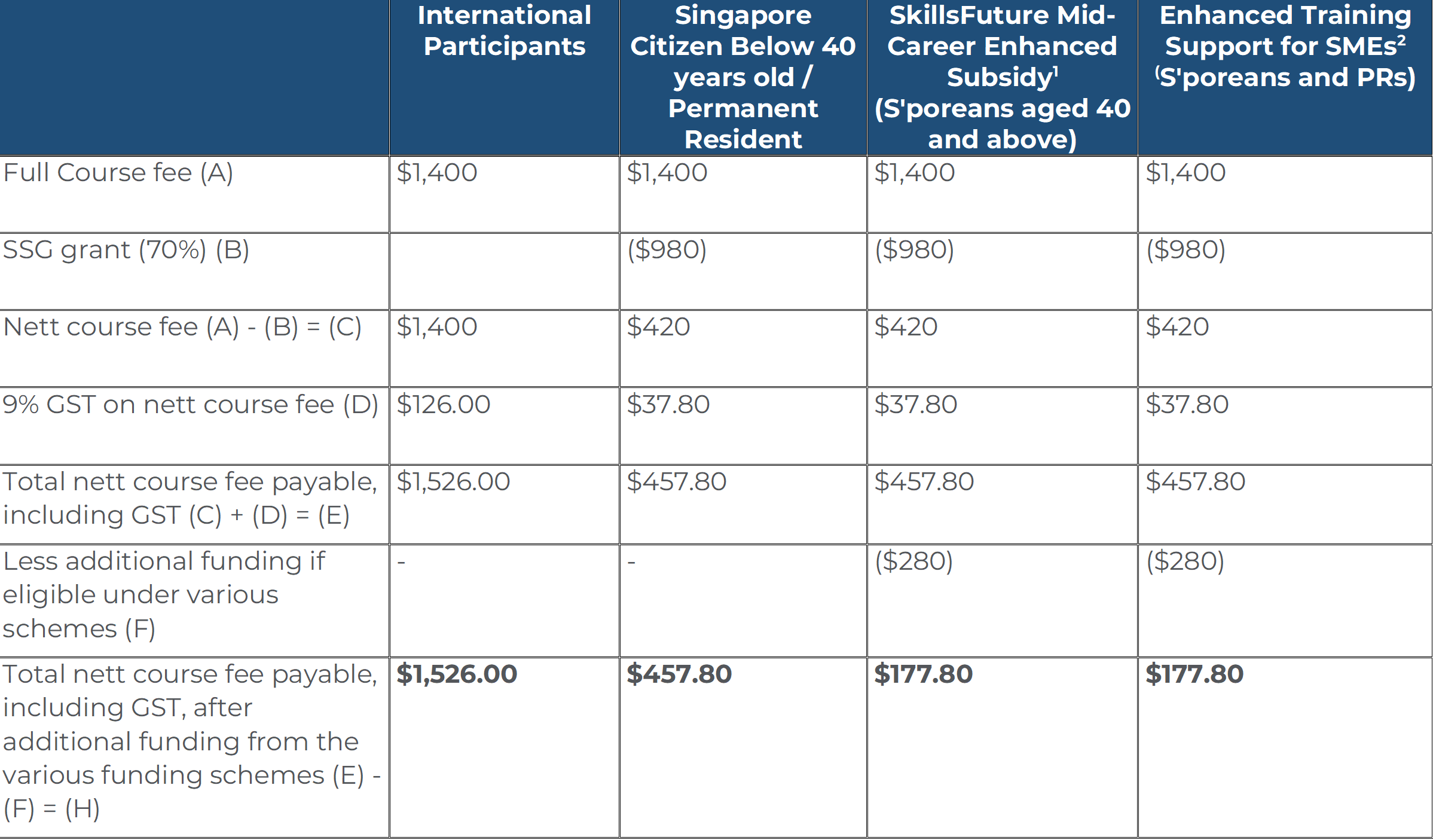Dates: 27 and 28 June, 19 and 20 September, 17 and 18 October 2024
Duration: 2 days
Level: Intermediate
Venue: Singapore University of Social Sciences
Sustainability reporting has evolved in recent years from being an account of traditional corporate social responsibility (CSR) efforts to more holistic reporting which encapsulates environmental, social, and governance (ESG) themes. With the global push for sustainability reporting and the benefits that sustainability reporting brings to both investors and companies, many companies now prepare an annual sustainability report to describe the organisation’s sustainability practices with reference to ESG issues. Sustainability reporting also allows organisations to consider their risks and opportunities related to sustainability issues, and to make informed decisions to mitigate risk and explore opportunities for growth.
This course seeks to provide practical guidance on the global frameworks for sustainability reporting and the implementation process, as well as key considerations for sustainability reporting.
This course is a collaborative effort with Deloitte.
Architects, engineers, HR personnel, financial consultants, sustainable consultants, carbon and environmental consultants, supply chain managers, facility managers, etc.
- Overview of sustainability and trends
- Introduction to sustainability reporting
- SGX’s sustainability reporting requirements
- Sustainability reporting frameworks
- Understanding GRI Standards
- Stakeholder engagement approach
- Materiality matrix and materiality assessment
- Data collection for sustainability report
- Setting targets for sustainability metrics
- Sustainability report development plan
- Challenges in preparing a sustainability reporting
- Elements of a good sustainability report
A. Knowledge and Understanding (Theory Component)
By the end of this course, participants should be able to:
- Appraise the requirements of sustainability report according to Global Reporting Initiative (GRI) Standards
- Design stakeholder engagement approach
- Construct materiality matrix to prioritise material factors for sustainability disclosure
B. Key Skills (Practical Component)
By the end of this course, participants should be able to:
- Collect data as per requirements of GRI Standards
- Propose the outline and requirements of a sustainability report according to GRI Standards
- Prepare a sustainability report
| Time | Agenda |
|---|
| Day 1 |
| 09:00 - 09:30 | Course overview |
| 09:30 - 10:15 | Overview of sustainability and trends |
| 10:15 - 10:30 | Break |
| 10:30 - 11:15 | Introduction to sustainability reporting |
| 11:15 - 12:30 | SGX’s sustainability reporting requirements |
| 12:30 - 13:30 | Lunch |
| 13:30 - 14:45 | Sustainability reporting frameworks |
| 14:45 - 15:45 | Understanding GRI Standards |
| 15:45 - 16:00 | Break |
| 16:00 - 17:30 | Stakeholder engagement approach |
| Day 2 |
| 09:00 - 10:00 | Materiality matrix and materiality assessment |
| 10:00 - 11:00 | Data collection for sustainability report |
| 11:00 - 11:15 | Break |
| 11:15 - 12:15 | Setting targets for sustainability metrics |
| 12:15 - 13:15 | Lunch |
| 13:15 - 14:30 | Sustainability report development plan |
| 14:30 - 15:45 | Challenges in preparing a sustainability reporting |
| 15:45 - 16:00 | Break |
| 16:00 - 17:30 | Elements of a good sustainability report |
| 17:30 - 18:30 | Assessment – Prepare a sustainability report using a case study |
- Attendees should have a basic understanding of environmental ecosystem.
- Have good English proficiency.
- Possess basic information and communication technology (ICT) skills.
- Possess basic understanding on climate change.
- Be able to source and analyse relevant materials from the workplace, library, internet or online databases for information on climate change.

Grace Cheah is the owner/founder of Sustinere Pte Ltd, an independent consultancy which provides sustainability related consulting services to clients across various industries, on topics ranging from health and safety, environment, supply chain, labour and ethics issues, sustainability reporting and assurance. She has 12 years of experience in consultancy and auditing for various management systems, traceability schemes and social compliance standards. She holds a Diploma in Adult Continuing Education and has been delivering sustainability related training for Singapore Management University, Global Compact Network Singapore and Singapore Green Building Council since 2018. Grace has experience as a lead verifier for assurance of Sustainability Reports and Integrated Reports for various companies in the region and is a Lead Certified Sustainability Assurance Practitioner. She holds a M.Sc. in Biochemical Research from Imperial College London and a B.Sc. (Hons) in Biotechnology from University College London.
Please submit the following documents to cet@suss.edu.sg:
- Coloured copy (back and front) of NRIC for Singaporeans and PRs, or "Employment"/"S" Pass for foreign applicant
- Application form
Course Fee

1 Mid-Career Enhanced Subsidy: Singaporeans aged 40 and above may enjoy subsidies up to 90% of the course fees.
2 Enhanced Training Support for SMEs: SME-sponsored employees (Singaporean Citizens and PRs) aged 21 and above may enjoy subsidies up to 90% of the course fees.
- Participants are required to achieve at least 75% attendance and pass any prescribed examinations/assessments or submit any course/project work (if any) under the course requirement.
- Participants are required to complete all surveys and feedbacks related to the course.
- The course fees are reviewed annually and may be revised. The University reserves the right to adjust the course fees without prior notice.
- Singapore University of Social Sciences reserves the right to amend and/or revise the above schedule without prior notice.
For clarification, please contact the SUSS Academy via the following:
Telephone: +65 6248 0263
Email:
CET@suss.edu.sg